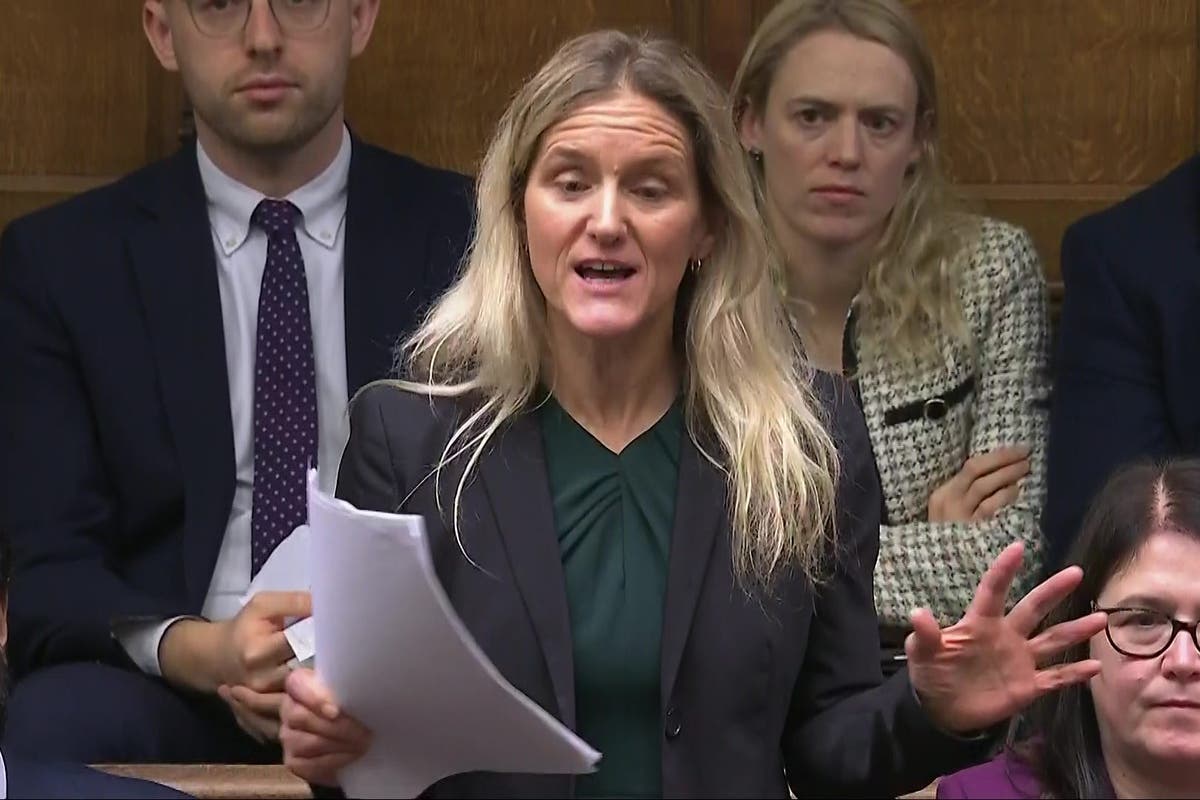MPs are debating the divisive issue of assisted dying for the first time in almost a decade ahead of a historic vote this afternoon.
Kim Leadbeater, the MP behind the bill, has argued her colleagues have a chance to “correct injustice and reduce human suffering”, while opposition campaigners have warned of “inevitable abuse, pressure, coercion and mistakes”.
Five hours have been set aside for MPs to air their views on the controversial Terminally Ill Adults (End of Life) Bill in the Commons on Friday.
A vote must be called before 2.30pm otherwise the bill is highly unlikely to make any further progress through parliament, with Ms Leadbeater saying she is hopeful this “major social reform” will pass this first stage in the process of becoming law.
The debate comes after the issue was voted down by MPs in 2015, with MPs split over the new proposed legislation.
Encouraging or assisting suicide is against the law in England and Wales, with a maximum jail sentence of 14 years.
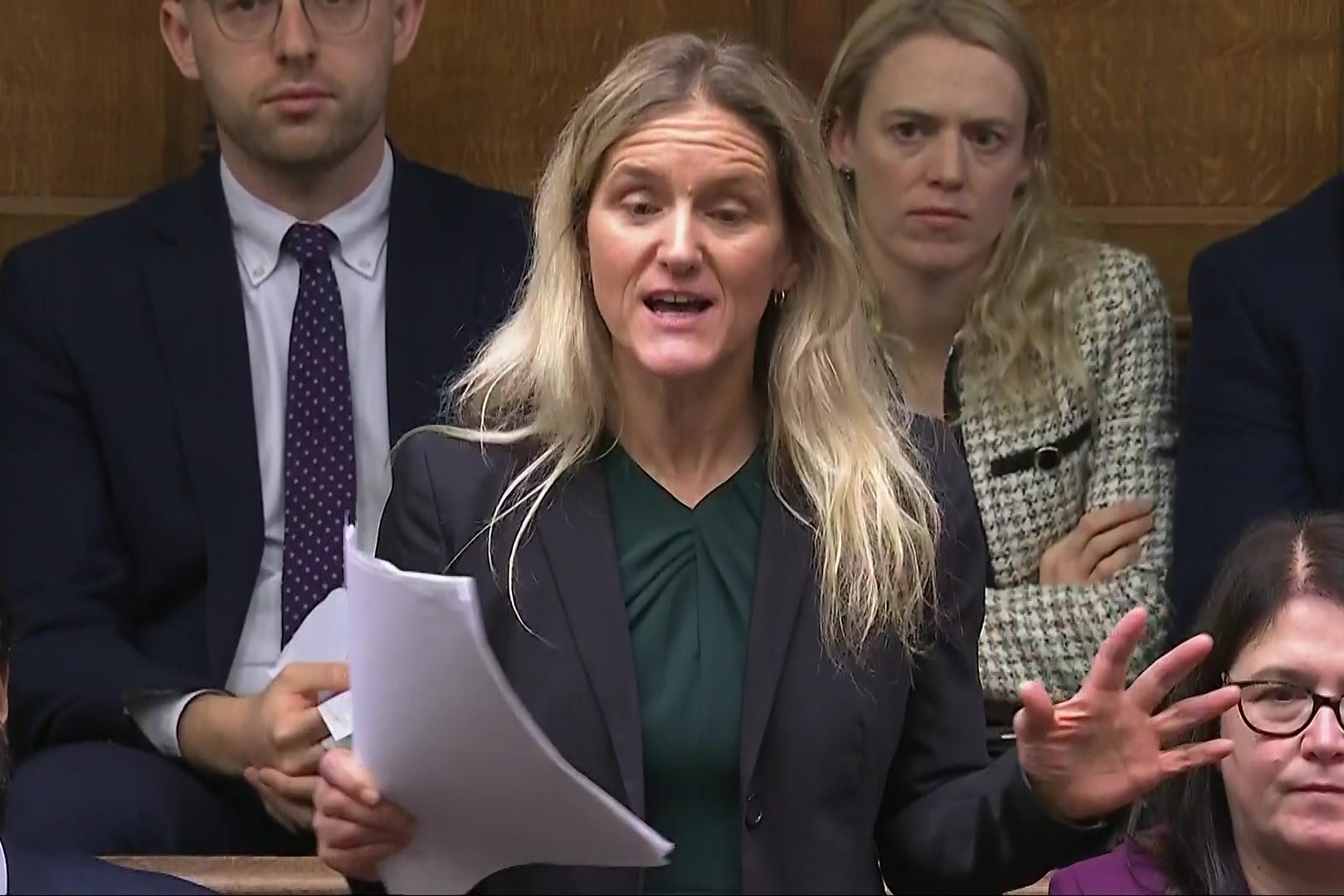
Ms Leadbeater has said the current law is not fit for purpose and her proposals would allow terminally ill adults in the two nations with less than six months to live to end their lives, subject to the approval of two doctors and a High Court judge.
The bill has led to impassioned debate. Below, The Independent takes a look at the five key arguments on each side:
For
‘People who are dying deserve the right to die with dignity’
Supporters of the bill argue that people who are dying deserve the right to die with dignity.
Pro-change campaigners Dignity in Dying are among those who argue that, along with good care, dying people who are terminally ill and mentally competent adults deserve the choice to control the timing and manner of their death.
‘Terminally people should be allowed to end their suffering’
Ms Leadbeater has argued that her bill would reduce human suffering.
Patients can still suffer extreme physical or mental pain in the final days of their life despite good palliative care, with supporters saying people should be allowed to avoid this.
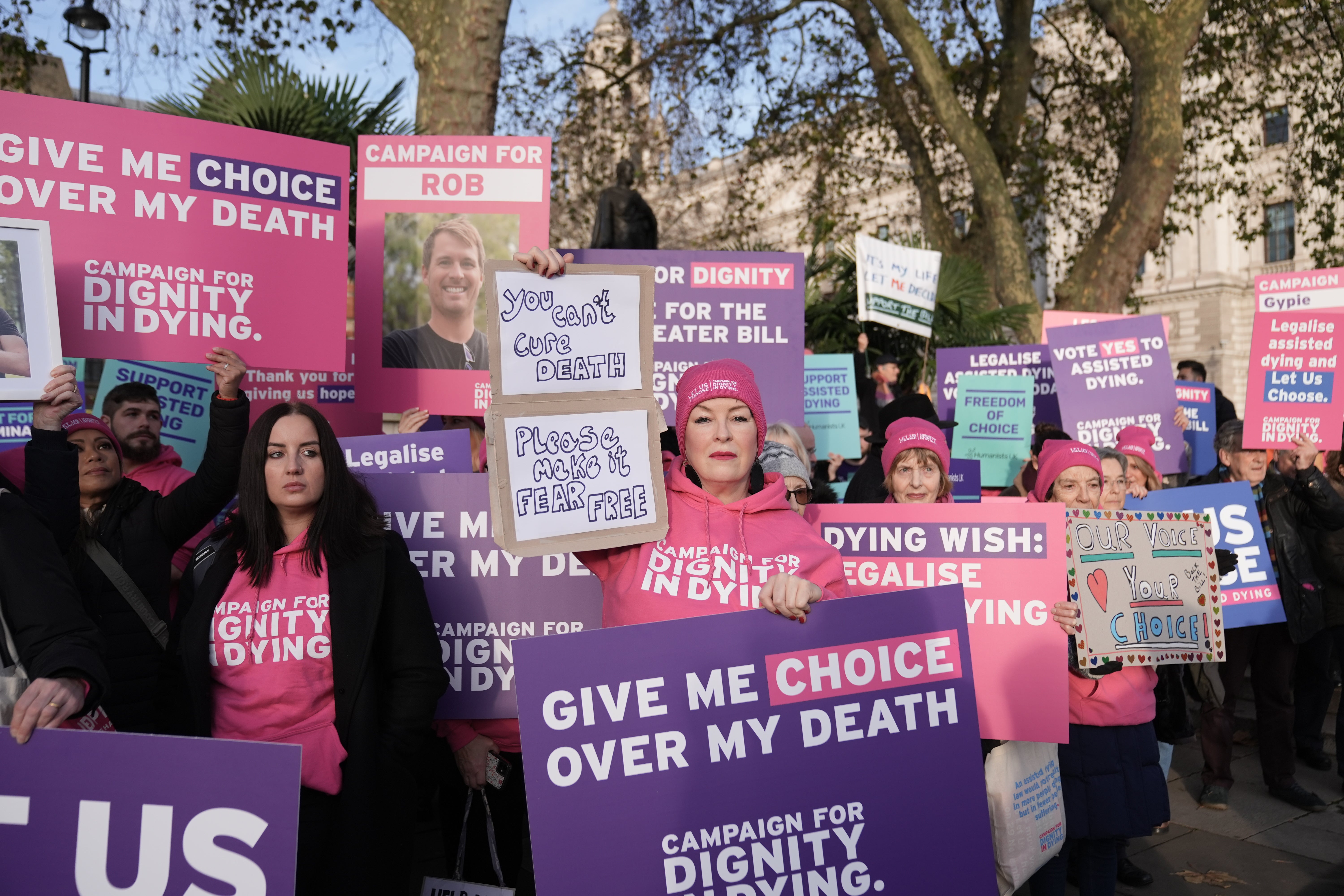
Majority of public appears to support assisted dying
Research by the Policy Institute and the Complex Life and Death Decisions group at King’s College London (KCL) in September suggested 63 per cent of just over 2,000 adults surveyed in England and Wales want assisted dying to be legalised for terminally ill adults in the next five years, while a fifth (20 per cent) said they do not.
More recent polling from More in Common this month found 65 per cent if around 2,000 people across Great Britain support the principle of assisted dying while 13 per cent oppose it and the rest are unsure.
Legislation contains enough safeguards to allay concerns
Ms Leadbeater argued that her legislation would feature the “strictest protections” of any similar bill in the world.
The terminally ill person must make two separate declarations, witnessed and signed, about their wish to die.
The process must involve two independent doctors being satisfied the person is eligible and the medics can consult a specialist in the person’s condition and get an assessment from an expert in mental capacity if deemed necessary. A High Court judge must hear from at least one of the doctors regarding the application and can also question the dying person as well as anyone else they consider appropriate.
It would be illegal for someone to pressure, coerce or use dishonesty to get someone to make a declaration that they wish to end their life or to induce someone to self-administer an approved substance. If someone is found guilty of either of these actions, they could face a jail sentence of up to 14 years.
The dying person must also take the medication themselves, with no doctor or anyone else able to administer it.
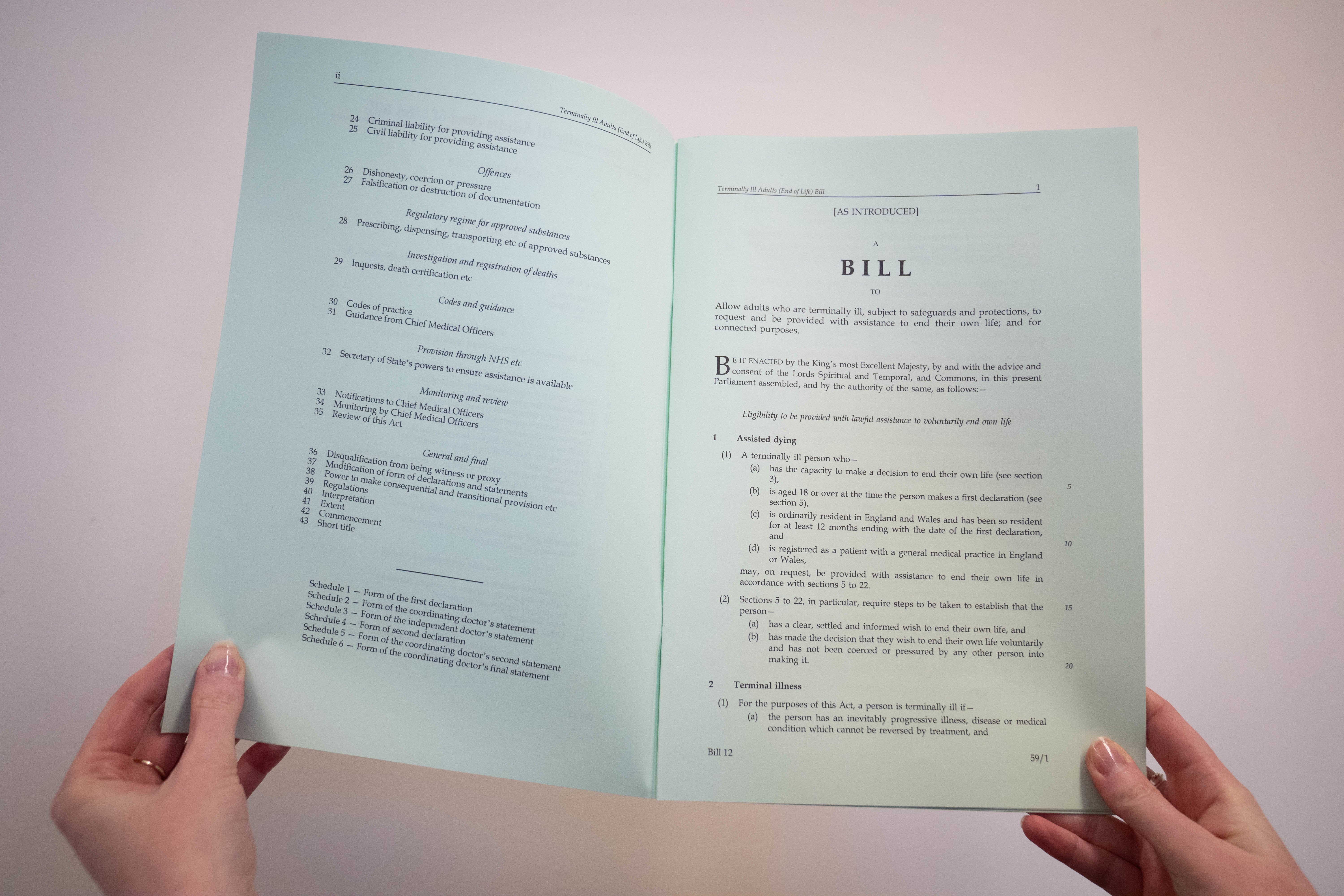
Current law is not working
Ms Leadbeater has argued her proposed law would correct injustice and bring major social reform, with the current law no longer fit for purpose.
Britons who are able to afford it can still travel abroad to end their life. However, this can happen prematurely because the patient needs to be well enough to travel. Furthermore, family members or friends often do not travel with them for fear of prosection upon their return to the UK.
Also, doctors fearing legal consequences can dodge patients’ questions about assisted dying.
Against
Focus should be on improving palliative care
The campaign group Care Not Killing is among those that use the terms “assisted suicide” and “euthanasia”, and who argue that the focus should be on “promoting more and better palliative care” rather than any law change.
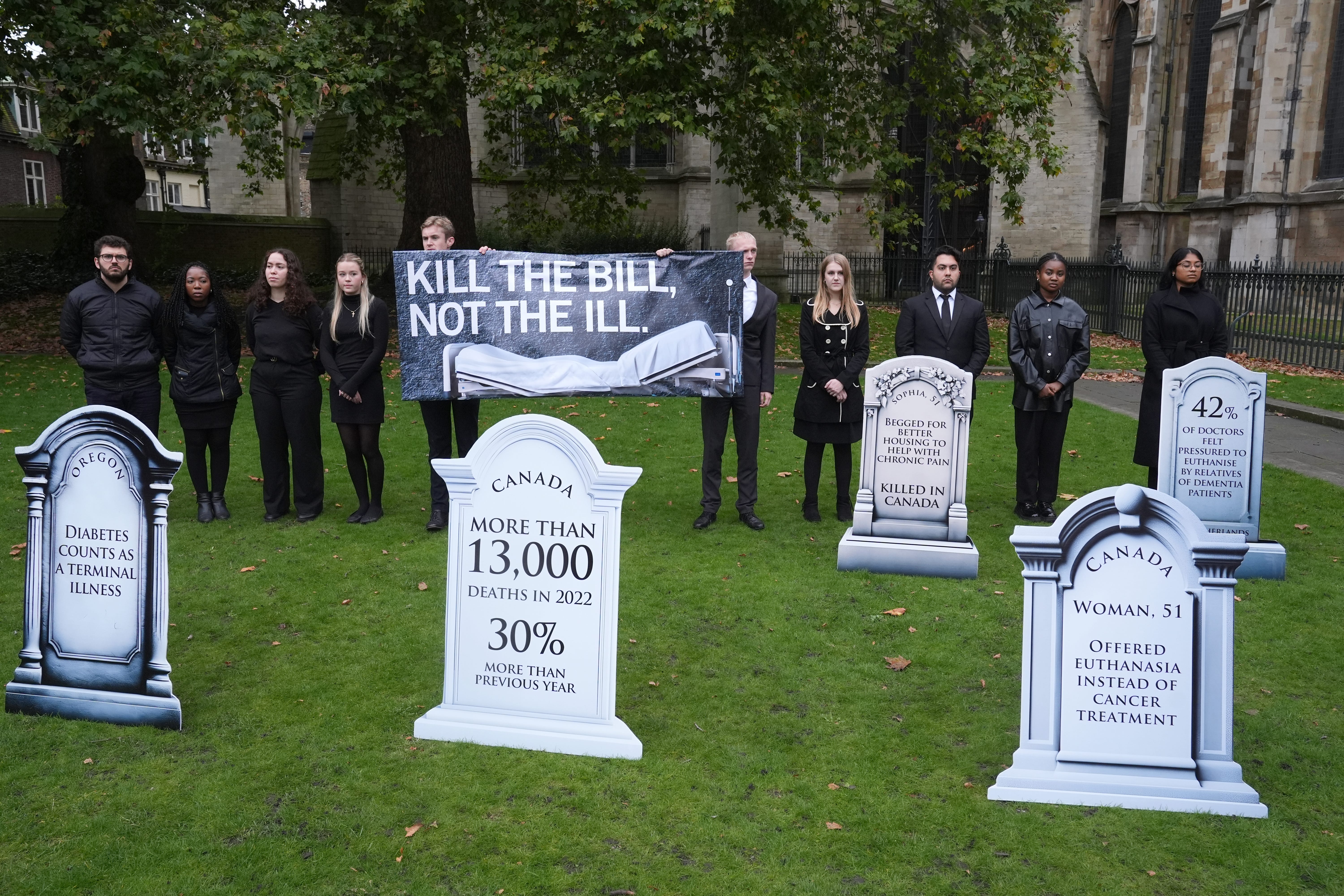
Fears vulnerable will be forced to end life early
Care Not Killing also says legalising assisted dying could “place pressure on vulnerable people to end their lives for fear of being a financial, emotional or care burden upon others” and argue the disabled, elderly, sick or depressed could be especially at risk.
Bill is a ‘slippery slope’
Opposition campaigners have raised fears of a slippery slope to wider legislation taking in more people.
Justice Secretary Shabana Mahmood shared her belief the law change could lead to “death on demand” when she made clear her opposition.
Becoming the first former UK prime minister to support the bid to legalise assisted dying, Lord David Cameron countered that “‘thin end of the wedge’ arguments can be used against almost every proposal for social change”.
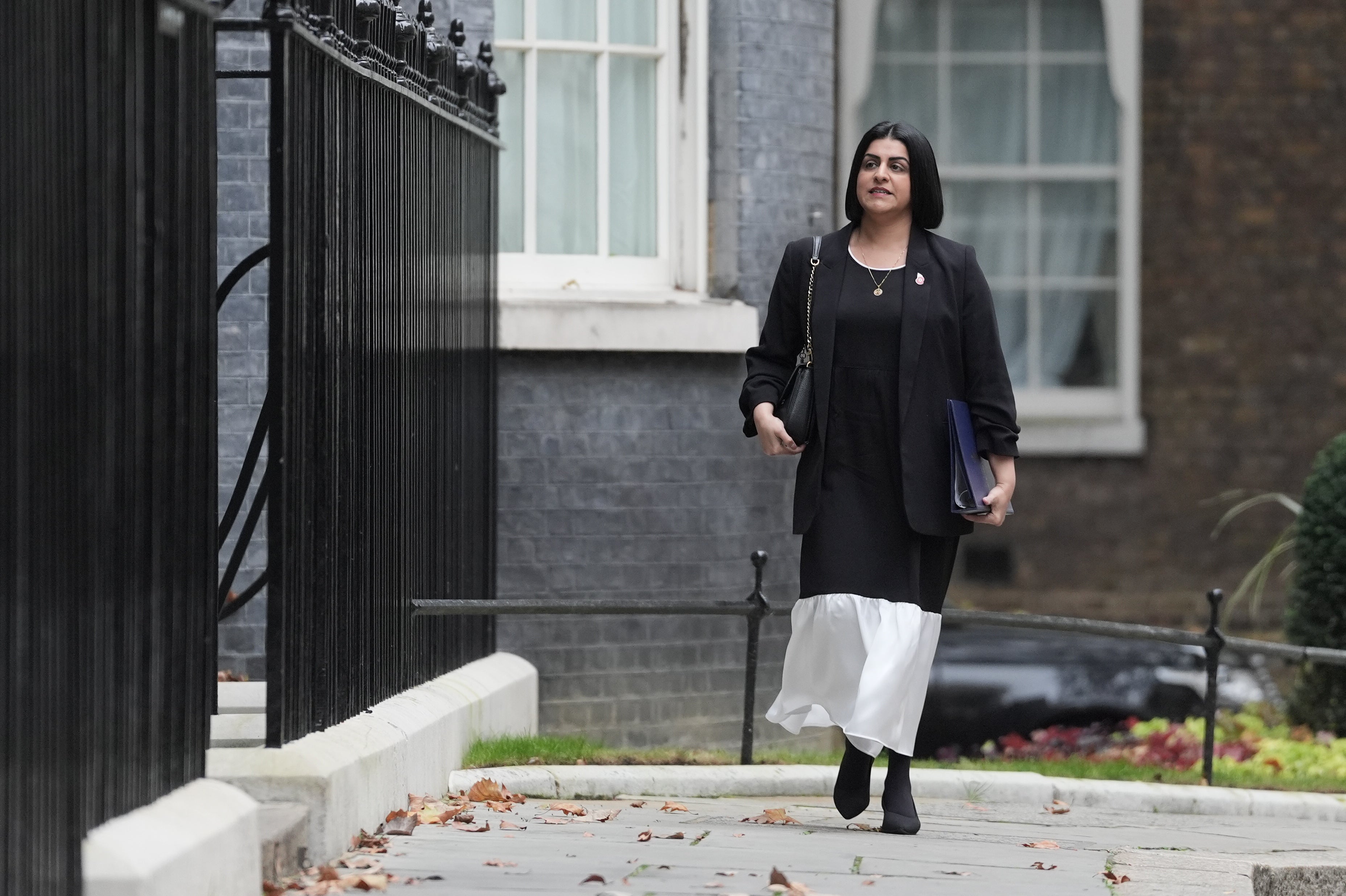
Legislation has been rushed
The Equality and Human Rights Commission (EHRC), which said it is neutral on assisted dying, warned that as it stands there has been “insufficiently detailed analysis” of human rights considerations regarding the bill.
In a briefing sent to MPs, the watchdog noted there has been no equality impact statement and that, as it is a private members’ bill, there is no requirement for a minister to declare its compatibility with human rights.
The regulator also said parliament will need “adequate time, expertise and the supporting materials required to effectively scrutinise” the bill, which would go to a committee if it passed Friday’s vote.
Some MPs and campaigners have raised concerns that the Bill has been rushed and will not get the scrutiny it requires – an argument rejected by Ms Leadbeater who insisted it is likely to be subject to more scrutiny because of the level of public debate on the divisive issue.
Concern over impact on disabled people and their rights
The regulator also said the Bill could “particularly impact disabled people”, pointing out “there is not always a clear line between terminal illness and disability”.
Paralympian Baroness Tanni Grey-Thompson warned that disabled people are “really worried” about a bill she described as “very loose” in terms of safeguards. The former athlete, who would have a vote on the bill if it passed through to the Lords, said she does not believe there are safeguards that can guarantee protection for vulnerable people.


